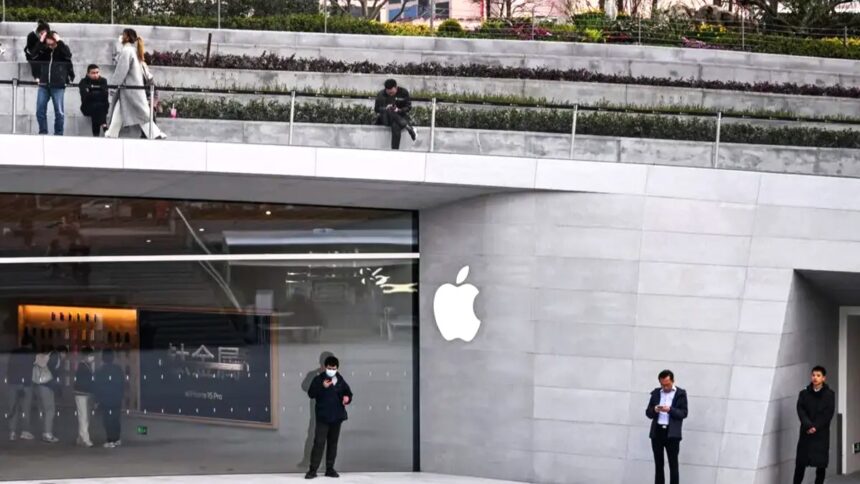Apple declared on April 19 that it was removing Meta’s WhatsApp and Threads from the Chinese App Store. The story reportedly surfaced after the Chinese government issued an order to remove the apps in question, claiming security concerns.
Analysts have predicted that Apple’s decision may increase relations between China and the US over technology and other issues. For instance, Congress has been attempting to expedite legislation in order to pressure Byte Dance, the Chinese parent company of TikTok, to sell the social media app.
According to early data, Korean competitor Samsung Electronics is believed to have surpassed Apple for the top rank. Sales of the US company are reportedly declining as a result of challenges in China, one of its top three regions. The decline is thought to have occurred as a result of Chinese government agencies and state-owned company employees being prohibited from bringing Apple products to work.
According to what is known, the US president Joe Biden stated that he will sign any new legislation that reaches his desk into law. The House may vote on it as soon as this coming Saturday. Apple promised to spend more than $250 million to build up its headquarters in the state.
What’s Next?
It is required of users to indicate that, if not these applications, they must be permitted to use alternative apps. Experts contend that rather than removing the apps, Apple may have opted to fortify its security protocols.
But even in cases where we disagree, we have a duty to abide by the rules of the nations in which we conduct business. Apple decided that the removal of these apps from the China storefront was ordered by the Cyberspace Administration of China due to national security concerns.
Removing WhatsApp and Instagram Threads from App Store
The creator of the iPhone claimed that because to worries over national security, the Cyberspace Administration, China’s internet regulator, ordered the withdrawal of Threads and WhatsApp from its app store. According to Apple, “we are obligated to follow the laws in the countries where we operate, even when we disagree,” thus it complied.
Requests for comment were sent to Apple by a representative for Meta. The applications’ removal by Apple was first reported by The Wall Street Journal.
According to a person knowledgeable on the matter, the Chinese authorities discovered incendiary and illegal comments regarding China’s president, Xi Jinping, on WhatsApp and Threads. The person said that it was unclear exactly what was contained in the information.
An Apple representative refuted the claim that the Chinese government ordered the removal of the applications due to inflammatory comments about Mr. Xi on Thread and WhatsApp.
According to App figures, a market research company that studies the digital economy, a number of other international messaging applications, including Signal, a US-based company, and Telegram, a Dubai-based company, were also taken down from Apple’s App Store in China on Friday. Both Telegram and Signal did not immediately reply to requests for comment.
The moves through Apple and Meta into an increasingly heated competition between China and the United States over technology. A plan that would require the Chinese internet giant Byte Dance to either sell its well-known video app TikTok or face it being banned in the country was being readied for a vote in the House of Representatives as early as this weekend. Lawmakers in the United States have stated that TikTok’s connections to China make it a danger to national security. Officials from China have denounced the attempt to compel a TikTok sale.
The White House has also been working to expand limitations on American dollars that are used to support the development of such technology within Chinese borders, as well as to limit Beijing’s access to cutting-edge technologies that may be used in conflict. In response, Beijing has moved to restrict the sales of memory chips from other American semiconductor firms and banned memory chips from American chipmaker Micron.
China has long used a complex system known as the Great Firewall to block American websites, including Facebook and Instagram. Although app shops allowed the use of WhatsApp, one of the most popular messaging services in the world, and Threads, an X-like software for digital communication, they were not generally utilized in China. Chinese applications like Tencent’s WeChat, which is owned by the Chinese internet business, outshined the ones from the United States.






